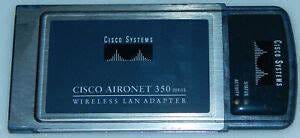Certification and Product Management
A take from a product manager for certifications and how they may or may not map to roles like Product Management. Here, we define what a certification is, and why they are valued. Part 1

A different view today. I am truly a product manager for certifications. I work at Cisco, and I am responsible1 for a few of the more popular career certifications, and thus I am well versed in what a certification is, what it isn’t, and why people pursue them.
Lately, I have seen several “Product” focused certifications on offer, and like many seasoned product managers, I scratch my head when I read about them.
As a way of exploring this topic, I will apply the thinking that I take in building/maintaining a certification.
What is a Certification anyway?
To set the frame for the discussion, let’s circle the wagons and define a certification or career certification.
The definition I found on Indeed captures it well:
Certifications are designated credentials earned by an individual to verify their legitimacy and competence to perform a job. Your certification is typically displayed as a document stating that as a professional, you've been trained, educated and are prepared to meet a specific set of criteria for your role. This statement is awarded only after you've passed the proper assessments administered by a recognized third-party credentialing institution.
A certification, regardless of what field, is evidence that you have some base level of competency, and that gives the job seeker a way to prove that they can do the job.
Of course, that is only half of the equation. The other half is the hiring manager understanding and accepting the qualifications of the certifications as something that is desirable.
That is the crux of the certification. But there are practical considerations that need to be discussed.
The value of a certification is how well recognized it is, and what currency does it hold for the possessor is key.
For a role like a Network Engineer, where there are well defined Knowledge, Skills, and Abilities (known as KSA’s) that can be objectively defined, measured, and quantified it is easy to see what a certification like the CompTIA Network+ provides. As a hiring manager (or an internal recruiter) you can see that Network+ listed on a résumé and be confident that the candidate knows the OSI model, TCP/IP, what a switch is, that a switch is a layer 2 network, and a router is a layer 3 network, and how to configure things like interfaces, VLANs, and the like.
It is akin to a report card that tells what the candidate can do. Could they have more skills? Sure, in fact they probably do have more skills, but it sets a baseline - a floor - of skills and thus reduces the risk of inviting this candidate to a round of interviews.
To obtain a certification requires a person to study for an evaluation of their knowledge, most commonly a “proctored” test that is closed book and ensures that someone has the skills and knowledge that they claim.
Certifications are fairly common in the professional world. My first certification was to be a forklift driver (when I was a chemical technician at a wafer fab in the early 1990’s). But fields like cosmetologist, dental hygienist, project management, and many others leverage certifications, licensing boards, and standards to comply with.
One other key attribute of a certification is the lifetime. A certification is active for a predetermined period, and requires either continuing education, or re-testing to maintain its validity. This is important to ensure that a certification is not a one-and-done activity, that if you are active in the profession you maintain some connection to its ongoing evolution.
In my world, networking, think of all the evolutions that have happened over the last 25 years. WAN’s used to be leased lines and frame relays, that evolved to MPLS connections, and now that is rapidly being replaced with software defines WAN’s that leverage the internet. Or the few servers in a closet, to an on premise data center, to a cloud application environment. Or 10baseT to FastEthernet, to GigEthernet, all the while WiFi becoming ubiquitous (do you remember the PCMCIA cards for your laptop).

Thus, recertification is key in the definition and ongoing value of the original certification.
Additionally, it takes commitment from the certified individual to maintain the certification. This usually comes as one of two options. First, that you can re-test to maintain the certification. In IT certifications, this was quite common, as the field changes at a significant pace, and if an individual originally certified 10 years ago, you would more as not be likely to question their competency on the current tech. Second, is the “continuous education” method. Where an individual takes courses, attends seminars, and the like to “earn” credits towards recertification. Fields like Nursing, Project Management and others are firmly in this tranche.
What makes a “certification” valuable?
Of course, possessing and maintaining the certification needs to hold some value for the person doing the work. Otherwise, why would you invest hundreds of hours of training, practicing, possibly paid education, test preparation materials, and your precious time to attain one?
For roles like a cosmetologist, it may seem silly if all you ever do is sit in a chair and get a haircut, like I do. But if you step back, and remember that they do permanents, dyeing, bleaching, and handling all sorts of potentially hazardous chemicals around people’s heads, then yeah, you want them to have some knowledge of what they are doing.
In Networking, a foundational certification (that Net+ or others) might be necessary to land that first role. And if you work in the field long enough, you might want to go further in your credentials, advancing your demonstrated skills. Often your employer will give you bonuses or raises if you add a professional certification or a different, but related (like network security) to your bag of tricks.
And if you work for a company that is a reseller of network equipment, they often are required to keep certain numbers of certified individuals on staff to satisfy requirements of their agreements with the vendor. Having two or more certifications increases your value to them, and often leads to better assignments, and more $$$ for you.
Of course, there are people who have certifications who are not required to hold them by their employer. They choose to push themselves, to expand their horizons, to increase their grasp. The actual certifications are badges of honor, and they display them proudly. It is part of their identity, and who they are.
Back to Product Management
For a lot of reasons, the role of Product Manager is more of a cornucopia than a monolithic block. And from my 24 years in the role, I have seen a huge range of expected skills, and demonstrative abilities in each role I have been.
It is not clear that if you distill product management down to its essences, you have buckets of commonality like there are in Network Engineering. No “OSI” model. No standards to refer to. No validated campus designs.
Sure, if you are a Scaled Agile house, you have a “role” for “product manager” and the Scaled Agile group will have a training and a certification for that role. But take that to a non-SAFe house, and it will be worth less than a cuppa Jo’ at Denny’s.
Sure, taking that 280Group, or BlackBlot program might help you prepare for a role. Just don’t expect it to give you a leg up on the hiring process.
Part 2 will look at why Product Management isn’t really well aligned to the whole “certification” phenomenon.
I am the product manager for the CCNA, the CCNP Enterprise, and CCNP Service Provider at Cisco ↩



